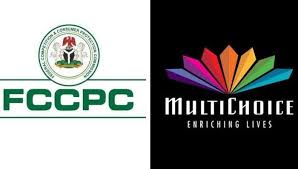In the unfolding regulatory standoff involving the Federal Competition and Consumer Protection Commission (FCCPC) and entertainment giant MultiChoice Nigeria, the public is once again being treated to a familiar cocktail of corporate resistance, regulatory pressure, and revisionist narratives attempting to reshape public perception. But beneath the noise lies a deeper issue: the fragile balance between consumer rights and corporate dominance in Nigeria’s media space.
Earlier this month, the FCCPC issued an order restraining MultiChoice from implementing a planned increase in subscription rates across its DStv and GOtv platforms. The Commission cited a lack of adequate notice to consumers, contravening extant consumer protection laws. MultiChoice, however, pushed back, insisting that its pricing strategy was lawful, reasonable, and driven by macroeconomic realities such as inflation, currency fluctuations, and operating costs.
This isn’t the first time the South African pay-TV provider is locking horns with Nigeria’s consumer watchdog. In fact, since 2021, both parties have had repeated clashes over pricing and service terms, with the FCCPC accusing MultiChoice of unilateral decisions that often disregard Nigerian subscribers’ rights. The real question, however, is not whether MultiChoice has the right to adjust its pricing — which, as a business, it technically does — but whether such decisions are being made transparently and within the limits of Nigerian law.
What’s disturbing in this case is the emergence of voices — often under the guise of neutrality or economic pragmatism — subtly championing MultiChoice’s stance while undermining the FCCPC’s statutory role. These revisionist voices frame the Commission’s intervention as “anti-business” or “populist,” ignoring the fact that consumer protection is at the heart of every developed and developing regulatory environment.
Nigeria’s Pay-TV market is unique. Despite the presence of smaller players, MultiChoice maintains a commanding market share, giving it substantial pricing power. In such an environment, the role of a regulator becomes not just necessary but indispensable. Without the FCCPC’s vigilance, millions of Nigerian consumers could be subjected to exploitative practices under the guise of economic necessity.
To be clear, regulators must act within the law — and so must corporate entities. The FCCPC’s request that MultiChoice adhere to legal requirements around price notifications is not excessive. It’s standard practice in many jurisdictions that companies provide adequate public notice before implementing price changes, especially when consumers are locked into prepaid service agreements.
What Nigerians need now is transparency, fairness, and mutual respect between corporations and regulators. The revisionist attempts to paint the FCCPC as an overreaching body must be rejected. Regulatory institutions must be allowed to function without intimidation or public gaslighting — especially when they are acting within the legal boundaries to protect the masses.
In a country grappling with economic hardship, sudden increases in service charges can have far-reaching consequences. It is the regulator’s job to ensure that consumers are not left at the mercy of market giants, and any effort to weaken that role — no matter how subtle — is a disservice to the public interest.
In this battle between corporate power and public accountability, Nigeria must choose the side of the law — and the people.
